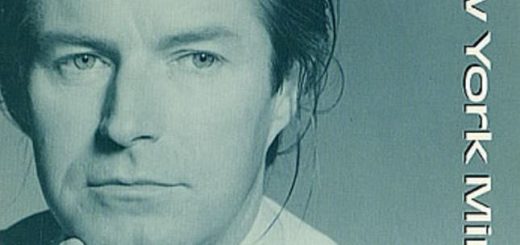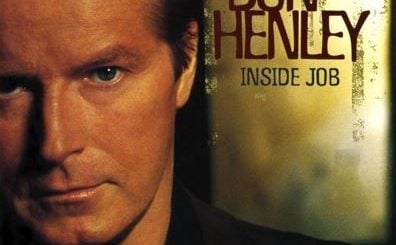Don Henley’s “The End of Innocence” Lyrics Meaning
Don Henley, the former Eagle, is a musician whose works we’ve over the years analyzed a lot. So we already know that he specializes in songs that delve into political, social and even spiritual matters. And from the first verse of “The End of the Innocence”, it appears as if Don is once again taking us in such a direction.
That is to say that the concept of innocence is one we usually associate with childhood. And likewise, Henley is harping back to his youth, “with mommy and daddy standing by”, and life at the time being carefree and optimistic.
But now in his maturity, he has come to realize that the “fairy tales” of childhood are built upon falsehoods. And NO, dear reader, that observation is not to imply that Don once believed in make believe characters per se. Instead he now understands that real life is not “happily ever after” as in the storybooks. Apparently, this first became evident to him via his own parents divorcing at some unspecified age of his life.
The Untouched Place
However, in the chorus that follows, he invites the listeners to a place “still untouched by men”. The way he describes this scenario is as one where the beauty of nature rules, and mankind is able to lay back and chill to his heart’s content. But in describing this location as “the end of the innocence”, Henley also gives the impression that is in fact fantastical, i.e. a place that doesn’t actually exist.
Or explained alternatively, it wouldn’t be logical for the vocalist to dub this location (which does indeed appear innocent) so except to allude to the notion of it not actually existing. Indeed the fact that no man has ever gone there buttresses the concept of this being the vocalist’s own fairy tale, so to speak.
America, the Warmongering Nation
In the second verse, Don goes about criticizing his homeland, America. This song was dropped during the Reagan years, in which the US government dealt with its own fair share of scandals such as the Iran-Contra Affair. And without going into too much detail, said fiasco was centered around the illegal and unethical distribution of weapons.
Relatedly, the focus of the vocalist’s poetic argument in this passage seems to be criticizing America for being a warmongering nation. And to note, with this song being dropped in 1989, the United States was not involved in any major war at the time. But that does not negate the fact that the US has been the main weapons supplier, to the entire world even, from the mid-20th century going.
Interestingly, Don closes out the verse just as he did the first, by referring to lawyers and his father and all. In that first instance, as noted it has been concluded that he was alluding to a divorce between his parents. But this time around it’s apparent that he’s acknowledging a grander concept. This concept would be that in this world we live in, even if someone is doing something knowingly wrong, so long as they have an appropriate excuse or proper legal backing, they are likely to get away with it.
So going back to the concept of “fairy tales”, these are the stories we are told as adults, that such-and-such is on the up-and-up, when in actuality they’re sheisty.
Biblical Paradise?
By the time the second chorus rolls around, the paradise that Don Henley is referring to is starting to sound more like heaven in a Biblical sense. Or perhaps it can be said that as the vocalist has aged, he has replaced the fairy tales of his youth with visions of Eden, a place where “sin” can be “wash(ed) away” and all.
But along those lines, our general understanding of paradise is a realm that can only be attained in the afterlife. And that understanding, though unstated, further lends to the notion that this is not an actual location he’s referring to that can be like accessed by an airplane.

A Romantic Interest being addressed?
What then appears as the third verse takes the song in different direction, this time around with the vocalist addressing a romantic interest. But as with all the lyrics of this piece, it can be deduced that he’s speaking metaphorically, at least to some degree. And what he appears to be saying is that there exists a degree of childlike innocence in all of us, one that is unattainable once we become privy to what’s really going down in the world.
Takeaway
Yes, this analysis has relied heavily on conjecture, even more so than our breakdown of other Don Henley songs. But that’s because this piece leaves even more for the imagination to put together itself. Some metaphors, such as those alluding to the Reagan administration, are easier to discern. But others are a bit more out there.
However, in conclusion, it is obvious that the vocalist deems innocence, at least for himself and likeminded individuals, as a thing of the past. It doesn’t seem that he is referring to an internal sense of innocence as much as, say peace between men. Or the way he sees it is that type of existence is only present in some type of undefined location, perhaps the afterlife even – or put more plainly a place that doesn’t actually exist, in a manner of speaking.
Writing Credits and Release Date of “The End of the Innocence”?
The song was composed by Henley himself with support from American singer, pianist songwriter and multiple Grammy Award winner Bruce Hornsby.
The pair, being renowned music producers themselves, has been credited with the song’s production.
“The End of the Innocence” was formally released on the 6th of June, 1989 as a single form Henley’s album of the same name.
Is there a Chart History?
Yes. “The End of the Innocence” has a rich chart history. For example, on the Hot 100, it made it to number 8. It was also a top-10 song in Canada. It actually peaked at the number 3 position there. Germany, Netherlands and the United Kingdom are among the countries where this song also charted. In the latter place for example, it was a top 50 hit.
Grammy Nominations
In 1990, the song earned Grammy nominations for “Record of the Year” and “Song of the Year” awards. It however, lost both awards to “Wind Beneath My Wings”, a song performed by Bette Midler.
The following songs were also nominated for the above-mentioned Grammys:
- “The Living Years” performed by Mike + The Mechanics
- “She Drives Me Crazy” performed by Fine Young Cannibals
- “We Didn’t Start the Fire” performed by Billy Joel
- “Don’t Know Much” performed by Linda Ronstadt & Aaron Neville
Bruce Hornsby covers “The End of the Innocence”
A well-received remake of the song was released in 2000 by the song’s co-writer, Bruce Hornsby.
“The End of the Innocence” Album
“The End of Innocence” (the album) was released on the 27th of June, 1989 as Henley’s third solo studio album. The album came out through Universal Music Group’s Geffen Records. Geffen Records was founded by American businessman, David Geffen.
Four other songs in addition to the title track were put out as singles to create awareness for the album. The song “New York Minute” was one of them.
This commercially successful album has sold over 6 million copies in the US alone. The album did not fail to impress outside of America too.
“The End of Innocence” was placed at No.389 on Rolling Stone’s 2012 list of “The 500 Greatest Albums of All Time”.










Up there in the list of best lyrics ever.